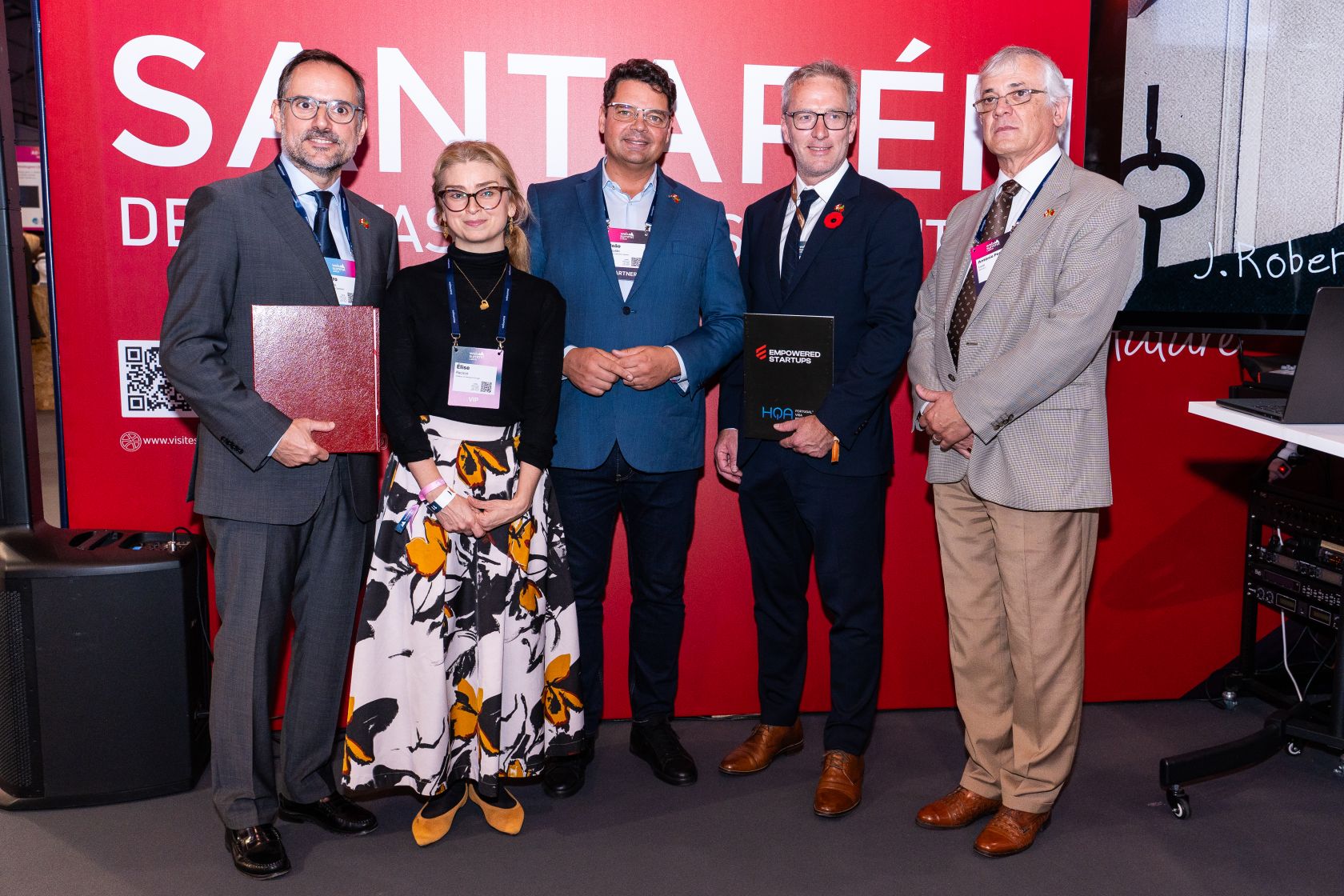Between conversations, panels and symbolic moments, there is a clear feeling in the air: Portugal has already won. It is not just an expression of pride; it is a realization that echoed through all the corridors after Microsoft's announcement to invest 10 billion euros in Sines. The president of the technology company, Brad Smith, said that this is one of the company's largest investments in Europe and that Portugal won the race to host the Artificial Intelligence gigafactory.
Historic moment
I was present at this historic moment, which reinforces the perception that our country is becoming a true engine of the European digital economy. Microsoft joins a growing list of multinationals that choose Portugal not only for its location, but for the stability, talent, and vision they find here.
But the day brought much more than investment announcements. Early in the morning, I participated in the stand of the Polytechnic of Santarém, where Empowered Startups once again showed its commitment to the future of the country, signing a new Memorandum of Understanding (MoU) with the Municipality of Santarém. This agreement marks an important step in the expansion of the HQA® program to the interior of Portugal and symbolizes the municipality's commitment to attracting foreign direct investment, talent, and innovation to the region.

Through this partnership, Empowered Startups will support the government's strategic priorities, including attracting highly qualified professionals, transferring knowledge, and continuously supporting research and development projects in collaboration with local higher education institutions. Since 2023, Empowered Startups has already collaborated with the Polytechnic of Santarém, resulting in 12 joint projects between foreign founders of the HQA® program and the university. This work has been essential in creating new R&D opportunities and boosting the local ecosystem, showing that municipalities can play a decisive role in attracting talent and innovation.
International bridges
On the same day, I also witnessed the signing of another historic agreement: the cooperation between Unicorn Factory Lisbon and Hub71 in Dubai, which strengthens international bridges and accelerates the growth of Portuguese scaleups on the global stage.
During the event, the Deputy Minister of State Reform, Gonçalo Matias, recalled on the main stage that Portugal is ready to be a hub of excellence for Artificial Intelligence. You spoke of a digital revolution that is not only technological, but also social and economic. AI, with an estimated impact of €2.3 trillion by 2030, is transforming the economy and creating new opportunities for growth, jobs, and prosperity.
Portugal is positioned as one of the main European hubs of AI gigafactories, with investments of more than 16 billion euros, reinforcing digital sovereignty and offering safe alternatives to infrastructures outside Europe. This positioning is the result of a strategic vision that combines clean energy, human talent, and state-of-the-art infrastructure, such as the submarine cables that make Lisbon one of the most interconnected cities on the planet.
The enthusiasm does not come only from the large multinationals. Cristiano Amon, CEO of Qualcomm, admitted that Portugal is among the most interesting European countries for the expansion of its operations. The technology company sees Sines and other parts of the country as fertile ground to grow, taking advantage of the data center ecosystem and the rapid advancement in artificial intelligence.
All this reinforces an idea that has been with me for days, between the Web Summit and the parallel meetings: Portugal is no longer just a country of sun, sea, and good hospitality. It is a country that is seen as strategic, innovative, and resilient.
But if we want this momentum to last, we need more than big announcements. It is time for municipalities, schools, science, government, and parties to move in the same direction. Portugal must turn this enthusiasm into concrete policies, remove bureaucratic barriers, and prepare the ground for the next generation.
The future is no longer something distant. It is happening now, here, and Portugal is driving this change.















